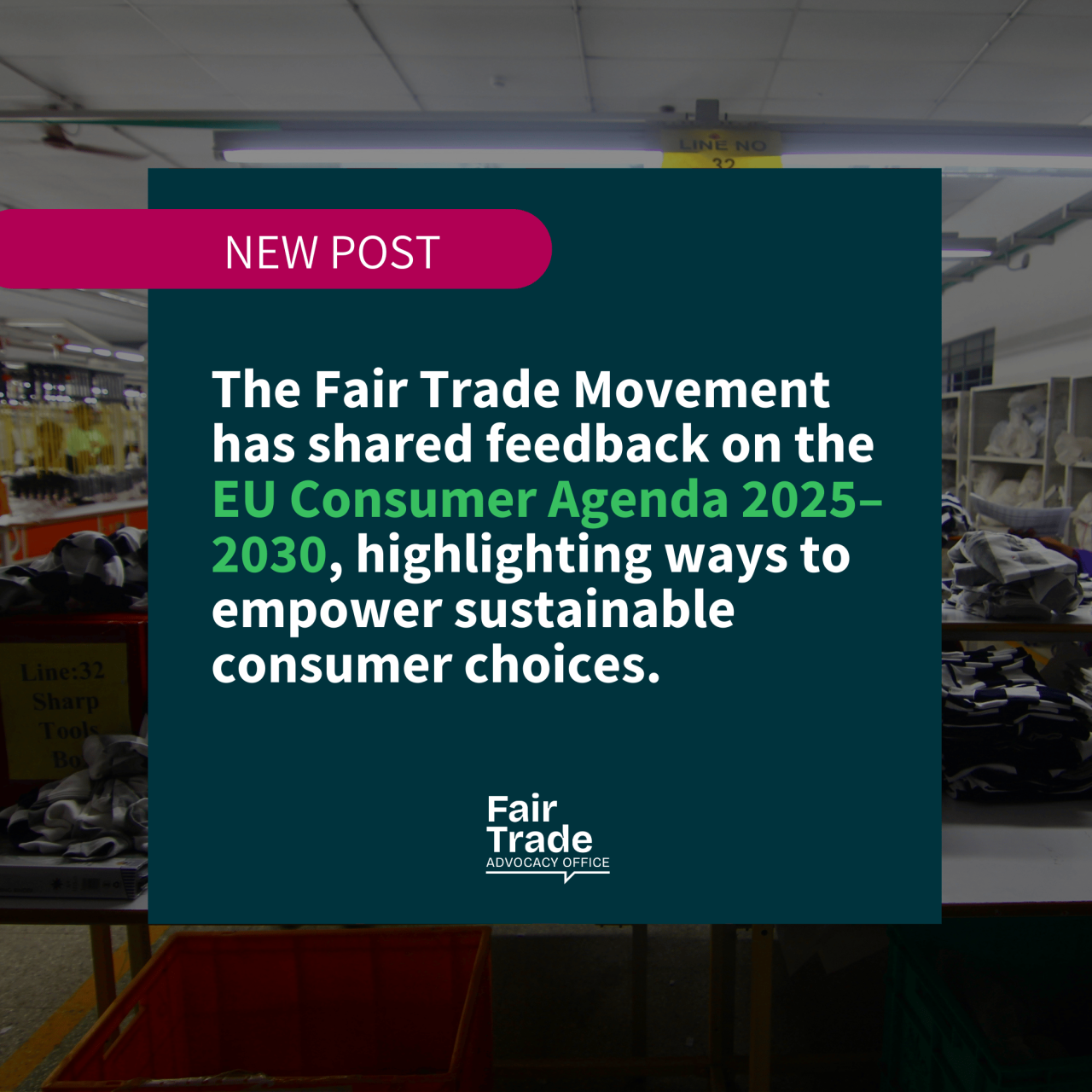The Fair Trade Movement’s feedback on the European Commission’s Consumer Agenda 2025-2030

The European Commission has launched a public consultation and call for evidence to update the New Consumer Agenda (2020) through a new action plan for consumers in the Single Market. This initiative aims to ensure that consumers are protected from unfair discrimination, retain their rights when crossing borders, and are safeguarded when purchasing goods or services.
Among the issues the initiative aims to tackle are consumers' choices that may not reflect their environmental concerns, the availability of sustainable products, and the ability of SMEs to operate efficiently and compete in the global market. The upcoming Consumer Agenda 2025-2030 will identify the main priorities and put forward a list of consumer-related initiatives and actions, with a specific timeline and making use of various EU policy tools.
The Fair Trade Advocacy Office has submitted its feedback on the European Commission’s Consumer Agenda 2025-2030, underlining how consumers can be empowered to make truly sustainable choices. Research from the Horizon Europe CUES project, of which the FTAO is a part of the consortium, shows that sustainability is often understood only through an environmental lens, while social fairness, decent livelihoods, and affordability are overlooked.
The FTAO’s feedback focuses on how to embed Fair Trade principles within this Consumer Agenda, which would empower consumers to do exactly this, and facilitate the uptake of sustainable choices within the EU Single Market. The FTAO focuses its recommendations on the following topics:
- Defining sustainable choices and sustainable products
- Empowering consumers to be drivers of sustainability
a. Understanding and expanding access to circular and sustainable products and services
b. Addressing green- and fairwashing
c. Revision of the Textile Labelling Regulation
d. Ecodesign for Sustainable Products Regulation - Cooperation with international partners
Read the full contribution here.
Get in touch:
For more information, please reach out to our Policy and Project Coordinator, Alena Kahle, at kahle@fairtrade-advocacy.org